My Life in WordsTips, travel, yoga, mentoring, life, and everything in between.
|
|
|
Depression. Shameful word yet with so many convictions and interpretations. As it's been said many times over, it's all in the head, which is true. We have so many thoughts going through our mind, some 60,000 a day. Are you tired yet? And one painful experience many endure is depression.
Definition of Depression: *A mood disorder in which individual experience extreme unhappiness, lack of energy, and several related symptoms * Psycho pathogenic feeling of sadness; a decrease in vital functions * It is also described as a feeling of down heartedness or psycho physiological withdrawal in the event of a perceived threat. Here are the common causes of Depression: * Unhappy relationships * Redundancy * Resentment * Parenthood * Retirement * Loosing a loved on * Divorce * Failure at work * Illness * Children leaving home * Lethargy * Unaccomplished “Yoga is also something that can be very powerful in the treatment of depression,” - Dr. Turner. Relate to one? Two? Any? All of the above? I have. I can relate. I turned to yoga because I was going through a rut in my last relationship which turned out to be such a blessing now in my life, and I'll explain later. However, from personal experience, there are days where, what I call an 'emotional storm' passes through and I just become down. I know for certain it's simply my thought process, questioning myself, and analyzing patterns that I am sensitive to. I turned to yoga and it has been my therapy on many levels but people also turn onto different avenues to steer away the state of depression. What I have learned in yoga therapy, as we had discussions and experiences, preventative measures us humans can put in place to help subside these elements of depression for a more conscious and constructive way of life. Prior to signing up for my first certification a few years ago, I was emotional. I was lost, confused of my relationship and where I was going. My relationship which I thought was my savior was actually alienating me. One day, I walked into a workshop titled, 'Yoga for Emotions" led by a woman who went through depression herself and there were a few moments during this workshop where I just wanted to cry. I felt connected to this type of yoga, it was therapy for me mentally, which has led me to where I am today writing this blog. I'm not a professional expert readers and I'm being frank. I don't have scientific proof of having studied years upon years of the bio-mechanics and in the medical field. But what I can say, on my own behalf, in order to be balanced you have to be able to go inward and identify what it is that draws depression to you. Take myself for example. Some days I'm easy peasy, very chill, and have an outlook like Lao Tzu, to believe in the way and what was meant to be will be. The drive I use to have when I was younger, that ego driven expression has taken a back seat. If there was something I wanted to make happen, I'd make it happen and no one would stop me. Does that not make me a go getter? Maybe to some body elses eyes. Yet, now in my 30s I feel, with the help of yoga, I have learned to witness what it is going on in my head and take the time to witness and observe versus react. I have also noticed with yoga on a mental aspect in observing others, the bouts of depression can hinder physical conditioning. What is the first thing some people like to do when they are depressed? Eat and eat a lot, OR, hit the gym and hit it hard. With depression comes alter of ego, depletion of hormones that are suppose to help us feel invigorating. Some of us can go zero to 60 mph in 1.5 seconds to default the depression by going into the gym, pretending to be happy, brushing it under the rug, drinking, or blaming others. Look, lets face it, we have to deal with our dramas regardless and there are so many ways to do so. Now as for yoga and depression, how can the yoga help prevent? Well first off, you have to be consciously aware of the 'disease' (dis - un ease - comfort) by what you do to your body, your mind set, surroundings including but not limited to who you surround yourself with. Secondly, how is your breathing pattern? I know we've barely touched on that aspect, but breathing is important. Controlled breathing is a wonderful aspect of knowing your state of mind. When you are depressed, do you smoke? Inhale the good shit, exhale the bullshit? Having been an ex-smoker myself, whenever I felt stressed out or depressed, I would smoke cigarettes for that oral fixation of physically feeling as if I'm letting go of what no longer serves. Then I was a habitual stoner, finding every reason to smoke week especially when I was depressed, to not think of the situation. I have since stopped smoking cigarettes from years ago, and I no longer smoke weed. Having gone through yoga therapy certifications and learning the benefits of yoga, back bends are extremely beneficial for defeating depression. Invigorating movement of the spine, heart openers, chest openers, vulnerability turned powerful with the help of poses to deflect those triggers of depression. However that isn't the only key player, it's also identifying what it is that is possibly making you depressed, observing thoughts. Yoga means to yolk and combine so you have to be open to unifying these counterparts in order to alter the state of mind to release the right hormones, the feel good and rewarding hormones, like dopamine for one. Furthermore, yoga is beneficial for depression AND anxiety applying both back bends and forward bends. Depending on what you read, research, education, asking Mr. Google, etc you'll see several different case studies and suggestions about what postures are reflective benefits for depression. I had a case study back in Chiang Mai that I will use as a great example. There was a student who suffers from both anxiety and depression as well as admitting being a melomaniac, otherwise known as bipolar. People who suffer from anxiety, forward bends are recommended for introversion and calmness. Back bends are known for a counter productive use of depression. However, with this particular study it was an opposite effect so keep in mind it is a case by case basis and it's important to realize this per a persons emotional stability. I'm only merely suggesting what I learned, personal experience and it's up to you in your yogic journey of what will work entirely for your sake as well as guide others. Along with the back bends, breathing is also very important. Techniques such as Ujjayi - The Victorious breathe and Kapalabhati - The Fire breathe or Skull Shining breathe. The Ujjayi breathe is a highly common technique used in the physical practice of yoga, controlled diaphragramatic breathing with a slight contraction in the back of the throat. Kapalabhati is learned technique that may take longer to pick up on, though it does look seemingly easy. The control rather is what makes it a 'technique' and the awareness it provides you with. Below I have demonstrated alternate nostril breathing known as Anuloma Viloma or Nadi Shodhana. It's closing the right nostril first breathing through the left nostril, close, and exhale through the right. Inhale through the right, close, exhale through the left, then inhale through left, close both nostrils and exhale through right. Universal breathing technique. Here is a list of postures you can practice to help in depression, and of course other magnificent benefits to menstruation, blood pressure, anxiety, etc. This blog is primarily in regards to depression, and I encourage you to apply these poses and breathing techniques on the daily. Please don't settle in the conviction that it only applies to one disease. That's the beauty of yoga, it's universal. Knowingly, each person is case by case, practice to your liking. Alternatively, you can also provide yourself with props for modified versions. I've highlighted the physiological aspects of the pose in aiding towards depression. Again, modify per your practice and bodily capability. I will touch base on anxiety next, and of course you will see many and multiple similarities as well capabilities for that disease as well applying postures. Any questions, please feel free to email me. One Love and Bless Up Desiree Bhujangasana - Cobra Pose
Ustrasana - Camel Pose
Setu Bandhasana - Bridge Pose
Dhanurasana - Bow Pose
Viparita Karani - Legs Up Against The Wall
Anuloma Viloma
0 Comments
Leave a Reply. |
Author -
|

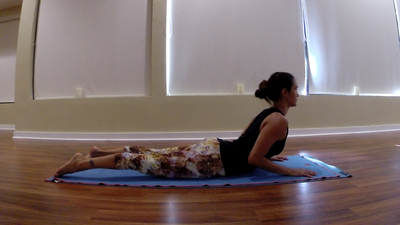
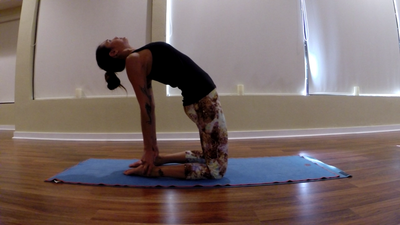
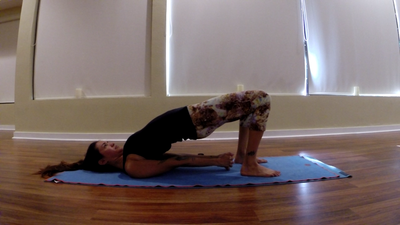
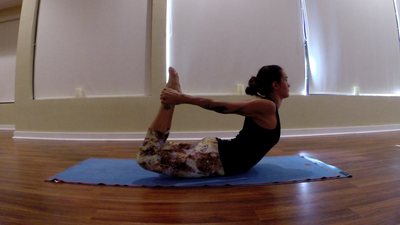
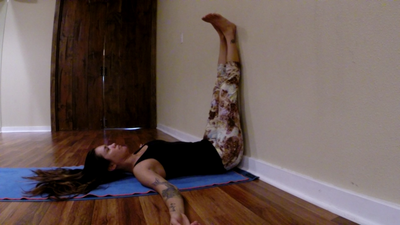
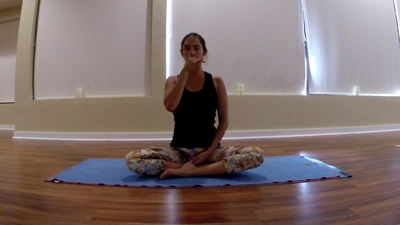
 RSS Feed
RSS Feed
